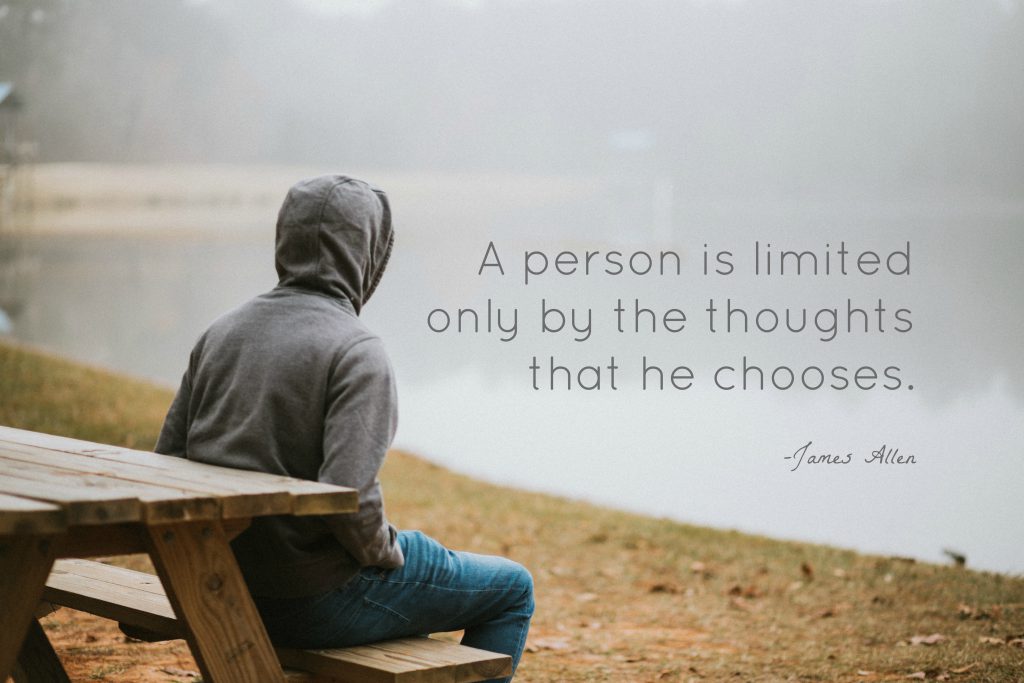We aren’t supposed to feel happy all the time
For it must needs be, that there is an opposition in all things. If not so, my firstborn in the wilderness, righteousness could not be brought to pass, neither wickedness, neither holiness nor misery, neither good nor bad. Wherefore, all things must needs be a compound in one; wherefore, if it should be one body it must needs remain as dead, having no life neither death, nor corruption nor incorruption, happiness nor misery, neither sense nor insensibility. (2 Nephi 2:11)

Photo by Amy Humphries on Unsplash
Absolute Truths
Absolute truths are not up to one’s discretion

Photo by Ben White on Unsplash

Photo by Ricardo Gomez Angel on Unsplash
It’s still important to willingly choose to believe
Flexible Thoughts
- double negative
- damaging / unproductive
- damning / stop progress
- source: Satan

The image that comes to mind is a dam. It stops the flow and progress of the river.
Photo by John Gibbons on Unsplash
- negative / positive
- cleansing / productive
- inspire progress / growth / improvement
- source: Heavenly Father

The image that comes to mind is a child crying in the bath because they don’t like taking baths. “Negative” emotion doesn’t necessarily feel good. We don’t like it. But it’s good for us. It’s cleansing.
I think that the 50% rule with opposition, when it comes to thoughts and emotions, it is referring to the “negative” category, not the double NEGATIVE category. Of course, we are going to experience the double NEGATIVE category and that is part of life, but I think we should do everything that we can to minimize these kinds of thoughts and feelings. The “negative” category is helpful and necessary to our progress.
I am going to give a few examples of both categories of negative thoughts and the emotions they create.
- NEGATIVE
- Thought: “I’m not good at making friends”
- Feeling created: shame, discouragement, hopeless
- NEGATIVE
- Thought: “I’m a horrible mom”
- Feeling created: shame, discouragement, hopeless, disgust
- “Negative”
- Thought: “My reaction was too harsh when my son was disobeying”
- Feeling created: guilt, remorse, sadness
- “Negative”
- Thought: “I’m going to miss my Grandma.”
- Feeling created: sadness, longing, grief
I hope you are able to see how believing the thought “I’m not good at making friends” or “I’m a horrible mom” are unproductive, and damning. When we feel shame, discouragement, hopeless, and disgust, do we want to go out there and improve, grow, and progress? No. We want to go hide in our rooms and eat junk food and just give up because it’s useless anyway.
Contrast that with the “negative” thought of “my reaction was too harsh when my son was disobeying.” This thought still doesn’t feel great, but there is a silver lining. The guilt and remorse and sadness that we feel motivates us to change and improve and try harder to be better.
There are also “negative” thoughts that we want to believe such as “I’m going to miss my Grandma” and “Child abuse is bad.” Even though we would all agree with “Child abuse is bad,” that doesn’t make it a circumstance. It’s still just a thought. It’s true because we believe it, because we choose it. We want to believe these kinds of thoughts because they show our humanity.
“But what about the smaller things we believe, our observations and truths, that are actually choices? We sometimes misunderstand and think that we should always choose to feel happy when we can, but this is not what any of us want. So we might as well be more conscious about the negative things we are choosing to think.
Which ones are conscious and deliberate, and which ones do we maybe want to change? What are the beliefs that we’ve been indoctrinated to believe that so many of us believe collectively, that maybe aren’t serving us, that maybe aren’t conscious choices? If we were to go back and look at all the beliefs that we’ve been programmed to believe and question each one of them, maybe there are things we would choose not to believe.And I want to suggest that you start with any negative observations that you have about yourself that feel true but aren’t serving you and are completely optional. So many of you have unconscious beliefs that sound like, “I’m not good enough”, “I should be happier”, “I should be better”.I want you to think about thoughts there, I want you to think about what else do you believe. “People shouldn’t do that”, “I should have had a different childhood”, “I should be prettier”, “I should be skinnier”, “I should be” – what is it that you’re believing that is negative that maybe you don’t have to believe, maybe you choose not to believe anymore?You have to decide, “Yes, I want to think those things are negative, and I’m willing to feel sad and grief and pain over them.” But is there a middle ground? Are there other thoughts that I don’t want to choose to believe anymore, that I want to change?I want to understand the reason why I’m thinking negative thoughts. One of the reasons is because of my primitive brain that’s afraid, trying to keep me safe. The other one is because I choose to, because of my humanity. But the other reason is because I’ve just been indoctrinated to believe something since I was a child, and maybe I can revisit those beliefs and choose to believe something different.So I want you to ask yourself, what is a thought that you’re thinking at any point that is painful? And ask yourself this, why are you choosing to believe it? Is it a conscious choice? Are you doing it on purpose? Does it serve you and your humanity? Is it worth it to feel this way in order to believe this thought?
Child abuse is bad, yes, I think all of us can agree that it’s worth it to feel horrible in order to keep that belief and that thought. But there are many thoughts – “I shouldn’t be doing this”, “That person shouldn’t be doing this”, “I should be richer”, whatever it is, what are those thoughts that you think aren’t optional that you could change?”
The contrast of thoughts need to be by choice. The balance of thoughts can be within your control when you decide what you want to believe and why. Do not be confused. Every thought you have is a choice. Many of the thoughts you choose to think will serve you even though they cause you pain, but many of them won’t.
Look at each one consciously and make sure you decide again that it’s a belief that you want to keep. And if it isn’t, I want you to think about changing it. Own it so you can have some authority over it, so you can change it maybe into something that serves you more.”


